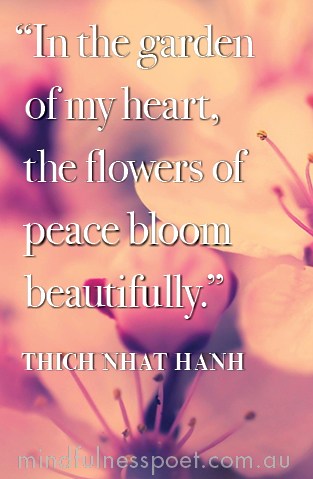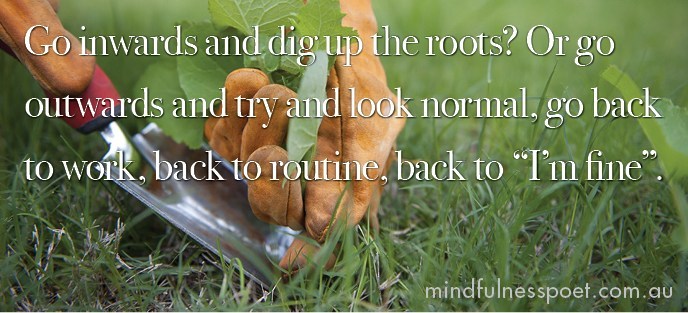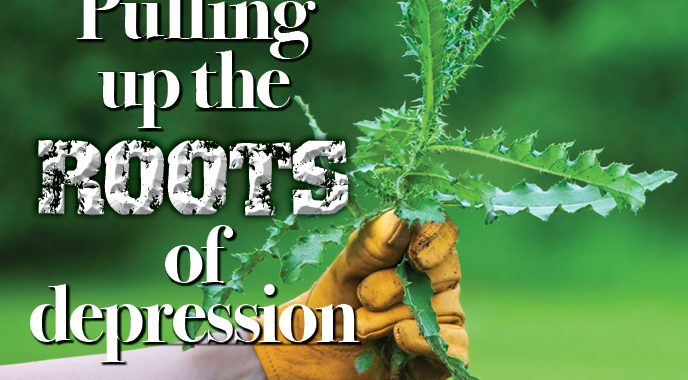A gardener will tell you that cutting off the heads of weeds only means that they’ll come back. To get rid of weeds you have to pull up the roots. It’s hard work, but to truly get rid of something you have to find and remove the cause.
Depression offers the same choice: a quick fix that looks good or an open ended search for a trauma that’s been buried? Life seems busy and it’s easy to opt for the quick fix with the self assurance that “I’ll sort all this out when things calm down.” Which never happens, of course, so we just keep mowing the weeds and slowly the garden dissolves into chaos.

One ‘quick fix’ for depression is ‘medication as a lifestyle’. Medication for my depression served me well as a short term way to calm a very distressed mind – and it did so by masking the symptoms. But at some point it became obvious the old patterns were still lurking underneath and would be reappearing soon. You can only mask symptoms for so long. And that’s when a choice had to be made: do I go inwards or outwards?
Go inwards and dig up the roots? Or go outwards and try and look normal, go back to work, back to routine, back to “I’m fine”. But I’m not fine, and the more I try to appear fine the worse it gets. I’m beset by bursts of rage, feelings of hopelessness and a deep underlying fear that sucks the life out of everything but the weeds. What now? Do I increase the medication dosage? Try some new exciting drug that everyone’s talking about? Or stop taking the drugs and face withdrawal and all its horrors?
When consciousness becomes crippled by the simple fact of existence – which is depression – there is something deeply awry. Deep problems imply deep causes, which suggests deep work. The roots of depression go into dark places, places that most of us have spent a lot of effort trying to avoid. To go back seems the opposite of healthy, and yet that’s where the roots lie. That’s where the end of suffering will be found, there amidst the frightening, irrational world of habits and identity.

Without therapy, without searching for the roots and bringing awareness to them, it will only be a matter of time before the depression reappears. Without bringing mindfulness to my inner state, to the world of emotions and the raw sensations of the body, the cause remains and therefore the effects will inevitably continue.
But in the space left by the removed roots of weeds there is a huge opportunity for healing and discovery. To quote Thich Nhat Hanh “in the garden of my heart, the flowers of peace bloom beautifully.”
